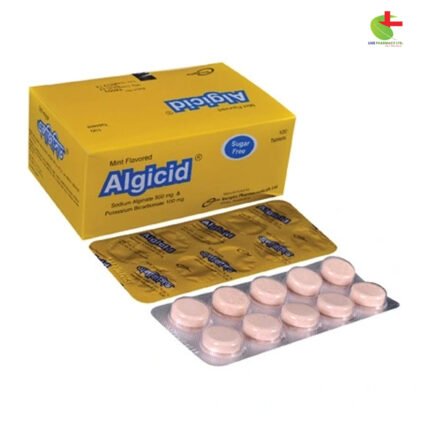Aknill 20
750.00৳ Strip(10)
- Aknill is indicated for severe acne forms resistant to standard treatments, such as nodular or conglobate acne.
- Contains Isotretinoin, which reduces sebum production and prevents pore blockage, targeting acne at its source.
- Requires careful monitoring and should only be prescribed by specialists familiar with systemic retinoids.
- Strict pregnancy prevention guidelines must be followed due to high teratogenic risk.
- Common side effects include dry skin, lip inflammation, and eye irritation.
 Brand
Brand
|
Incepta Pharmaceuticals Ltd |
|---|---|
 Generics
Generics
|
Isotretinoin |
 Type
Type
|
Capsule |
Indications:
Aknill is indicated for severe acne cases (e.g., nodular or conglobate acne or acne at risk of permanent scarring) that are unresponsive to adequate courses of standard therapies, including systemic antibacterials and topical treatments.
Pharmacology:
Isotretinoin works by altering cell cycle progression, cell differentiation, survival, and apoptosis, ultimately reducing sebum production, thereby preventing pore blockage and bacterial growth that causes acne. Isotretinoin and its metabolite, 4-oxo-isotretinoin, significantly lower sebum production. While it has minimal binding to retinoic acid receptors (RARs), other related metabolites like tretinoin do bind to the RAR-γ receptor, contributing to its acne treatment efficacy. Isotretinoin induces sebocyte apoptosis, reducing sebum production and minimizing comedone formation by reducing hyperkeratinization. It does not directly kill bacteria but modifies the microenvironment to reduce bacterial proliferation and may also enhance immune response and reduce inflammation.
Dosage & Administration:
- Administration: Capsules should be taken with food once or twice daily. Isotretinoin should be prescribed and supervised by physicians experienced in systemic retinoid therapy for severe acne.
- Adults and Adolescents: Start with 0.5 mg/kg daily, adjusting the dose between 0.5–1.0 mg/kg/day based on response and side effects. Treatment typically lasts 16–24 weeks, with a total dose of 120–150 mg/kg for remission.
- Renal Insufficiency: Start at a lower dose, around 10 mg/day, then increase as tolerated.
- Children: Not recommended for those under 12 years of age.
- Intolerance: Reduce the dose if side effects are severe, which may prolong treatment duration.
Interactions:
- Vitamin A and derivatives may enhance side effects.
- Microdosed progesterone may have reduced efficacy; use dual contraception methods.
- Keratolytic or exfoliative agents increase irritation risk.
- Benzoyl peroxide may reduce Aknill’s effectiveness.
Contraindications:
- Pregnancy and breastfeeding are strict contraindications.
- Women of childbearing potential must adhere to the Pregnancy Prevention Programme.
- Contraindicated for patients with hepatic insufficiency, elevated blood lipids, hypervitaminosis A, or concurrent tetracycline treatment.
Side Effects:
- Common: Dry skin, lips, eyes, mucosae, and epistaxis.
- Less Common: Anaemia, neutropenia, mental health effects, headaches, and joint pain.
- Rare/Very Rare: Severe psychiatric effects, vision and hearing impairments, liver abnormalities, gastrointestinal issues, and musculoskeletal disorders.
Side effects are generally dose-dependent and reversible after dose adjustment or discontinuation. Some effects may persist post-treatment.
Overdose:
Symptoms resemble vitamin A toxicity, including headache, nausea, and irritability. Most symptoms are reversible without treatment.
Pregnancy & Lactation:
Absolute contraindication during pregnancy due to severe risk of fetal malformations (CNS, facial, cardiac defects). Nursing mothers should avoid use due to potential adverse effects in infants.
Precautions & Warnings:
Female patients must receive thorough contraceptive guidance, preferably using two forms of contraception, including a barrier method. Pregnancy tests should be conducted before, during, and post-treatment, with results recorded.













Reviews
There are no reviews yet.